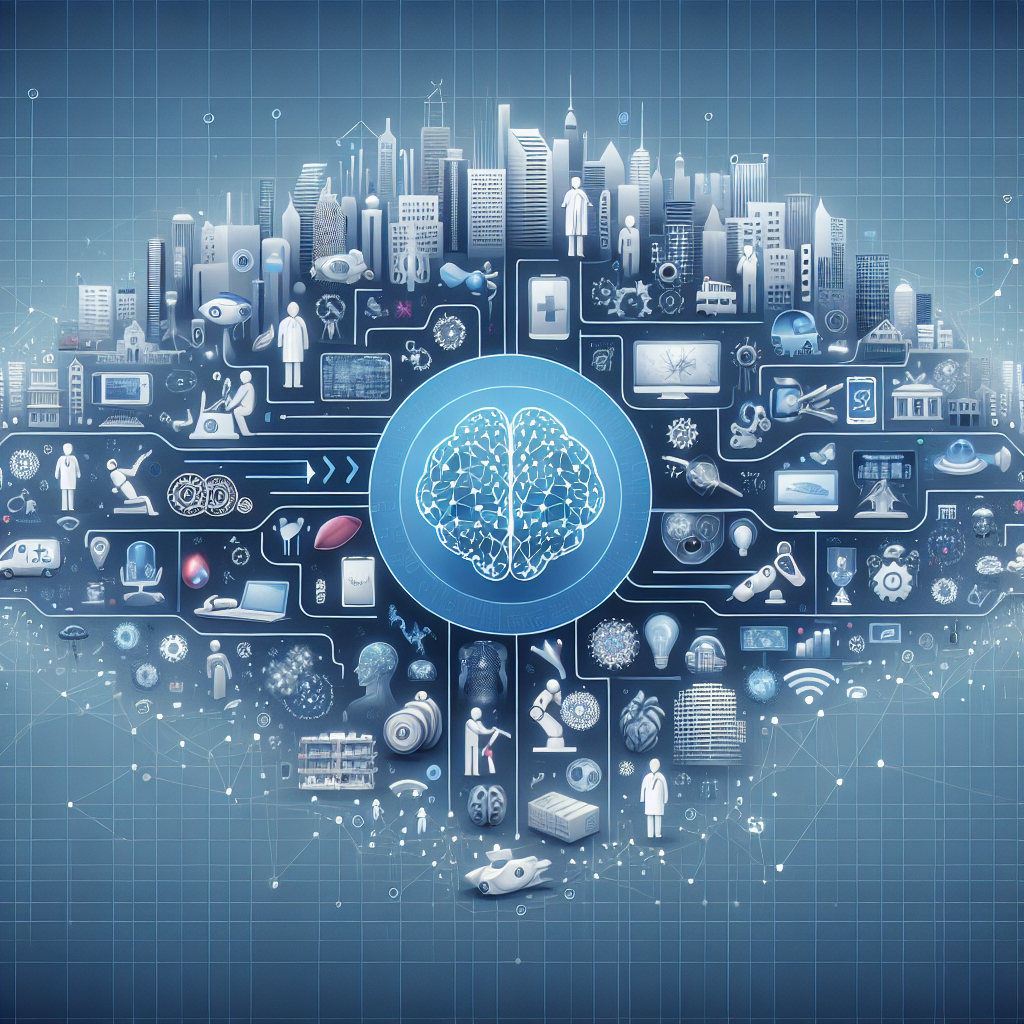Artificial General Intelligence (AGI) has the potential to revolutionize industries and society in ways we have never imagined before. AGI refers to a type of artificial intelligence that can understand and learn any intellectual task that a human being can. This means that AGI can think, reason, and solve problems just like a human being, but with the speed and efficiency of a machine.
AGI has the potential to transform industries across the board, from healthcare to finance to transportation. In healthcare, AGI can help doctors diagnose diseases more accurately and quickly, leading to better patient outcomes. In finance, AGI can analyze large amounts of data to predict market trends and make better investment decisions. In transportation, AGI can improve safety and efficiency by optimizing traffic flow and reducing accidents.
But the impact of AGI goes beyond just industries. It has the potential to reshape society as a whole. AGI can help us solve some of the most pressing challenges facing humanity, such as climate change, poverty, and disease. It can also help us create new opportunities and possibilities that we have never even considered before.
In this article, we will explore the potential of AGI to be a game-changer for industries and society, as well as address some common questions about this emerging technology.
The Potential of AGI in Industries
AGI has the potential to revolutionize industries in ways we have never seen before. Here are some key ways in which AGI can transform different sectors:
Healthcare: AGI can help doctors diagnose diseases more accurately and quickly by analyzing medical images, patient data, and genetic information. It can also assist in drug discovery and personalized medicine, leading to better treatment options for patients.
Finance: AGI can analyze large amounts of data to predict market trends and make better investment decisions. It can also help detect fraud and reduce risks in the financial sector.
Transportation: AGI can optimize traffic flow, reduce accidents, and improve safety in transportation systems. It can also help develop autonomous vehicles that can navigate roads more efficiently and safely.
Manufacturing: AGI can optimize production processes, improve quality control, and reduce costs in manufacturing. It can also help develop new products and services that meet the changing demands of consumers.
Retail: AGI can personalize customer experiences, optimize inventory management, and predict consumer trends in the retail industry. It can also help retailers improve their marketing strategies and increase sales.
The Potential of AGI in Society
AGI has the potential to reshape society as a whole by addressing some of the most pressing challenges facing humanity. Here are some key ways in which AGI can benefit society:
Climate Change: AGI can help us better understand and mitigate the impacts of climate change by analyzing complex environmental data and predicting future trends. It can also help develop new technologies and solutions to reduce carbon emissions and promote sustainability.
Poverty: AGI can help us address poverty by creating new opportunities for economic development and job creation. It can also help governments and organizations allocate resources more efficiently to support those in need.
Disease: AGI can help us diagnose and treat diseases more effectively by analyzing medical data and identifying patterns that human doctors may miss. It can also assist in developing new treatments and vaccines for emerging diseases.
Education: AGI can personalize learning experiences for students, identify areas of improvement, and provide real-time feedback to teachers. It can also help bridge the gap between different educational systems and improve access to quality education for all.
Common Questions About AGI
1. What is the difference between AGI and other types of artificial intelligence?
AGI is a type of artificial intelligence that can understand and learn any intellectual task that a human being can. It is different from other types of AI, such as narrow AI or machine learning, which are designed to perform specific tasks or solve specific problems.
2. How close are we to achieving AGI?
While significant progress has been made in the field of AI, we are still far from achieving AGI. Researchers are working on developing algorithms and technologies that can replicate human-like intelligence, but there are still many challenges to overcome before we can create a truly intelligent machine.
3. What are the ethical implications of AGI?
AGI raises many ethical concerns, such as privacy, security, bias, and job displacement. It is important to address these issues and establish guidelines and regulations to ensure that AGI is developed and used responsibly.
4. How will AGI impact the job market?
AGI has the potential to automate many tasks and jobs, leading to job displacement in certain industries. However, it can also create new opportunities and roles that require human skills, such as creativity, empathy, and critical thinking. It is important for policymakers and organizations to prepare for the impact of AGI on the job market and invest in reskilling and upskilling programs for workers.
5. How can we ensure that AGI benefits all of society?
It is important to ensure that AGI is developed and used in a way that benefits all of society, not just a select few. This requires collaboration between governments, organizations, and researchers to address issues such as bias, inequality, and access to technology. It is also important to involve diverse voices and perspectives in the development and deployment of AGI to ensure that it reflects the values and needs of all stakeholders.
In conclusion, AGI has the potential to be a game-changer for industries and society by revolutionizing the way we work, live, and interact with the world. It is important to continue researching and developing AGI in a responsible and ethical manner to ensure that it benefits all of society and helps us address some of the most pressing challenges facing humanity. By harnessing the power of AGI, we can create a better future for all.

